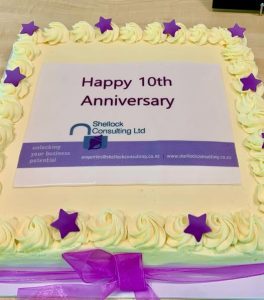17 March 2020: New Zealand Finance Minister, Grant Robertson, announced a massive economic stimulus package to help cushion New Zealand businesses and jobs while we face a world-wide recession.
Health spending will increase, by an initial $500 million. To “protect New Zealanders’ health”:
- Nearly doubling resources for Public Health Units, specifically to increase capacity for contact tracing
- $32 million for extra intensive care capacity and equipment at hospitals
- $50 million in support for GPs and primary care, and $20 million to improve video conferencing and telehealth consultations
- $20 million for more Healthline capacity
We are not quite sure where these extra qualified medical staff are coming from. There has been talk of recently retired doctors and nurses being brought back into the workforce, possibly working in triage, telephone advice and stepping back into private practice freeing up others to be front line. We suspect some of our medical students will end up having more patient interaction and clinical placements early, and there may be a fast tracking of new migrants that are qualified (but their qualifications unrecognised in New Zealand).
Support for beneficiaries, comes in the form of an increase of $25 pw in benefits (those on a main benefit) plus a doubling of the winter energy subsidy. Those receiving in work tax credits will be able to earn more without it affecting their benefits.
Employers will be able to claim up to $150,000 in wage subsidies if they can show a 30% downturn in business from the same time last year. This will allow employers to retain staff when their profit and production is down, and also for employees to receive some income when their sick leave is exhausted, if they are in self-isolation, are unwell or are looking after family members. From Tuesday (17 March 2020), affected businesses in all sectors and regions can immediately access $5.1 billion in wage subsidies, while $126 million will be set aside for COVID-19 leave and self-isolation support.
- Businesses will need to show a 30 per cent decline in revenue for any month between January and June 2020 compared to the year before (including projected revenue). Plus they must also show they tried to mitigate the impact of COVID-19 on their business.
- Employers will be paid $585 per week for full time staff and $350 for part time in an attempt to retain the workforce within their business.
- The employee subsidies will be capped at $150,000 per business and paid in a lump sum.
- And will be available immediately for 12 weeks.
We are not quite comfortable with the employee subsidiaries being paid in a lump sum but can see the efficacy of trying to handle an application in one go and not have to review it constantly. But in reality, there will be changes for each business through-out that period. We can see the potential repayment of these subsidies. Unfortunately, we also see this money being spent elsewhere as employers try to plug many financial holes at the same time. Having the information at hand to support any subsidy will be tricky including projections of business down turn. Time to turn to your accountant pretty quickly to have last year’s financials completed and this year’s up to date.
Self employed and sole traders will also qualify for the wage subsidy, but only for a maximum of 8 weeks rather than 12 weeks offered to employers of staff. We cannot establish the logic for this, and suspect it is a typical small minded view of small businesses. That somehow, small businesses and the self employed are not really businesses at all, and they should just get a real job (working for someone else)!
Jo Moir, of Radio New Zealand’s headline places a different emphasis on the Government announcements: “Businesses will receive the lion’s share of a $12.1 billion economic rescue package as New Zealand responds to the COVID-19 crisis.” Unfortunately, such headlines suggest that this Labour Government is propping up business at the cost to others such as employees, beneficiaries and the health sector. As we have already noted, the majority of the “business package” is to keep New Zealander’s in a job and continue an income stream. It is far easier for an employer to lay off staff now, and save a considerable amount of stress and cost to their business, than try to hold those jobs open.
Businesses will see additional deductions for spending, reinstatement of building depreciation (neither of these will produce short term results) and some tax relief in the form of remission of interest on late payments and lifting the provisional tax threshold from $2,500 to $5,000. More user friendly, is previously announced assistance by the Inland Revenue including refunding already paid provisional tax.
The $12.1 billion dollar package reflects a spend of 4% of GDP. Fortunately, our country and our government are in a position to borrow such sums. Of course, it will be our job to repay the debts. And that will, in the majority, fall to business to increase productivity and pay more taxes.
The $12.1 billion package includes:
- Initial $500 million boost for health
- $5.1 billion in wage subsidies for affected businesses in all sectors and regions, available immediately
- $126 million in COVID-19 leave and self-isolation support
- $2.8 billion income support package for our most vulnerable, including a permanent $25 per week benefit increase and a doubling of the Winter Energy Payment for 2020
- $100 million redeployment package
- $2.8 billion in business tax changes to free up cashflow, including a provisional tax threshold lift, the reinstatement of building depreciation and writing off interest on the late payment of tax
- $600 million initial aviation support package
“I want to make it clear that this is not a one-off package, it is just the beginning. As we go through this crisis towards economic recovery the Government will be constantly monitoring the situation and adjusting its response. As with every action we have taken we will be constantly reviewing every measure to ensure it is getting to the people and businesses that need it the most,” Grant Robertson said.
“We are actively discussing working capital support for small and medium businesses and tailor-made support for larger and complex businesses.
Mr Robertson spelt out the Government’s four guiding principles. These are:
- Timely intervention
- Fiscally sustainable
- Targeted to those who need it, and
- Proportionate to the economic shock affecting New Zealand.
We are particularly pleased that the employer and business support does not try to cherry pick those businesses that are immediately affected, because ultimately every employer, every business, every resident in New Zealand will be adversely affected by the COVID – 19 pandemic. We are already hearing reports that China’s economy is improving, which may mean those initially affected by border shut downs, such as fresh food exporters and the timber industry may be back to near normal soon enough. The tourism industry will take a considerable longer to recover, and tourism has until now played a significant role in our economy. It is times like this though, that makes one realise that having all one’s eggs in one basket or not doesn’t make a difference in a global economy.
Finally, we cannot help but think that some of these measures were already planned for the May 2020 budget, and have been brought forward. Nothing wrong with that.
You can read more about the Government’s announcements here. We thank the Government for these measures and look forward further announcements overtime.
If you or someone has become ill with a suspected case of COVID–19 please contact the Ministry of Health on 0800 611 116. You can also check out the latest advisories on their website here.
If there is anything thing we can help you with, please contact us through our website here.








